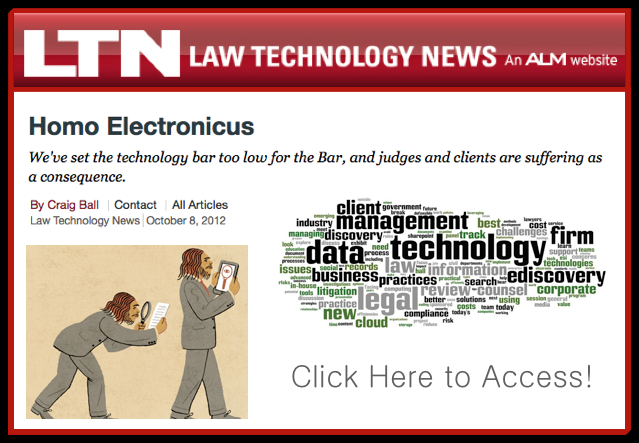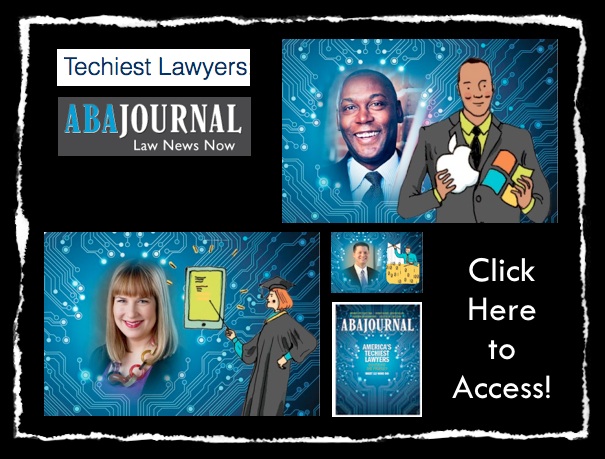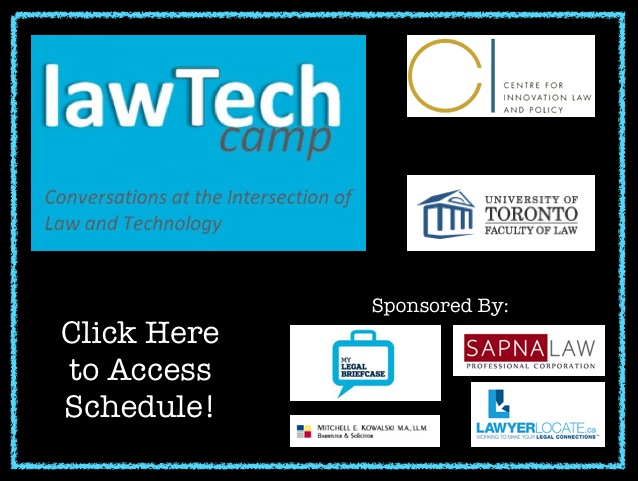Tag: law and technology
Making a Living By Giving Away Things for Free (via Sarah Glassmeyer)
Helpful words of wisdom offered by Sarah Glassmeyer from CALI to the students in yesterday’s ReInventLaw Entrepreneurial Lawyering Workshop here at Michigan State.
Homo Electronicus {via Law Technology News}

From the article: “We can’t imagine a competent lawyer not knowing how to find a document in a file folder or cabinet; yet, oddly, we can’t imagine a lawyer knowing how to fashion a competent electronically stored information search protocol or query a database. We barely expect lawyers to know what ESI protocols and databases are. We’ve set the bar too low for the Bar, and clients and judges are suffering as a consequence. … Part of the problem is that the practical education of lawyers has long depended upon veteran partners handing down the lore of lawyering to associates. But when it comes to e-discovery, veteran lawyers have nothing to share.”
“I say, let’s start learning to carry our own briefcases when it comes to digital evidence. Let’s stop kidding ourselves that this isn’t something we need to understand, and stop being so damned afraid to get our hands dirty with data or look like we might not be the smartest person in the room because we don’t know what goes on under the hood!”
Quick Response: In surveying the landscape of other law schools, it is quite correct to say that very few schools teach e-discovery at all and most of them that do give the tech short shrift. I would just like to note – however – that I teach E-Discovery here at Michigan State University College of Law with my colleague Adam Candeub and we do not skip out of the tech or (“e”) side of the e-discovery.
We teach the tech in significant detail in part because we have the technical skills that most law professors do not — please see (HERE) as well as (here) (here) (here) (here) (here) (here) (here) (here) (here) (here) (here) (here) (here), etc.
Our e-discovery course is designed to give our students a competitive advantage in the legal labor market. As this article makes clear, there is a clear arbitrage play here for entry level lawyers to get a foothold because most of the practicing bar (as well as most law students) are not very sophisticated when it comes to e-discovery.
I should note that when we proposed this class – my colleague and e-discovery co-professor Adam Candeub got into a bit of a dust up over at Above the Law. Obviously, we ended having the last word when ~15 thought leaders told them they were wrong and they had to publish the equivalent of a retraction. 🙂


